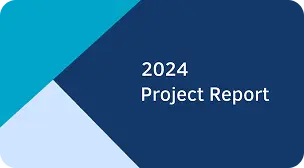When you are running a small business in India, and you are well aware of how difficult it can be to get money at the right time. Whether it is working capital, expansion or cash flow management, finances are usually the greatest obstacle. Business loan schemes in India come to rescue as a real game changer there.
Did you? According to the Ministry of MSME report of 2023, India has more than 63 million MSMEs whose contribution to India GDP is almost 30 percent and 48 percent to exports. However, approximately 40 percent of small enterprises cannot get formal credit. It is this gap that is supposed to be filled by the government backed schemes.
In this blog, I will take you through both central government business loan schemes and state government loan schemes for MSMEs as well as the small business loan schemes available in India. You will also find government loans for entrepreneurs and subsidized business loans in India that makes you borrow at a lower cost. By the end, you will have known which scheme is more appropriate to your business.
👉Get your project report ready for Central & State bank loans – Start today with experts!
Understanding Business Loan Schemes in India
Business loan schemes in India: so what are they?
In a layman language they are government sponsored programs that offer small businesses, startups and entrepreneurs cheap loans. As opposed to the traditional bank loans which are characterized by high interest rates and cumbersome paper work, these schemes come with:
- Collateral-free loans
- Reduced interest rates
- Simplified processes
- Coverage of subsidy or guarantee
👉 According to RBI data, over ₹4.5 lakh crore worth of credit has been disbursed under government-supported MSME loan schemes in the last five years.
For small entrepreneurs like you, these loans are not just financial assistance — they’re a lifeline.
Central Government Business Loan Schemes
The government of India has rolled out several central government business loan schemes to empower MSMEs and entrepreneurs nationwide. Let’s look at the most popular ones:
| Scheme Name | Target Segment | Key Benefits |
| Pradhan Mantri Mudra Yojana (PMMY) | Micro & small businesses | Loans up to ₹10 lakh under Shishu, Kishor & Tarun categories |
| Stand-Up India Scheme | SC/ST & women entrepreneurs | Loans from ₹10 lakh to ₹1 crore for setting up new enterprises |
| Credit Guarantee Fund Trust for Micro & Small Enterprises (CGTMSE) | MSMEs | Collateral-free credit up to ₹2 crore |
| Prime Minister Employment Generation Programme (PMEGP) | Entrepreneurs & small businesses | Subsidy of 15–35% for setting up new projects |
| PSB Loans in 59 Minutes | MSMEs & small businesses | Quick approval of loans up to ₹5 crore within 59 minutes |
| Startup India Seed Fund Scheme | Startups | Financial assistance for product development, trials, market entry |
| National Small Industries Corporation (NSIC) Subsidy Schemes | MSMEs | Credit support, raw material assistance, and marketing support |
| PM SVANidhi Scheme | Street vendors | Loans up to ₹50,000 with interest subsidy |
| SIDBI Make in India Soft Loan Fund (SMILE) | MSMEs | Quasi-equity loans for new and existing businesses |
| Credit Linked Capital Subsidy Scheme (CLCSS) | MSMEs | 15% subsidy on machinery & technology upgradation |
| NABARD Schemes | Rural entrepreneurs & agri-based businesses | Low-interest credit for agriculture & rural development |
These central government business loan schemes are ideal if you’re aiming for growth at a national scale.
State Government Loan Schemes for MSMEs
Now, let’s talk about state government loan schemes for MSMEs. Many state governments design customized schemes for entrepreneurs in their region.
Examples of State Schemes:
| State | Scheme/Institution | Focus Areas | Special Features/Incentives |
| Kerala | Kerala Financial Corporation (KFC) | Tourism, IT, Manufacturing | Special incentives for women entrepreneurs |
| Maharashtra | Maharashtra Centre for Entrepreneurship Development (MCED) | Agro-based industries, Small manufacturing, Industrial ventures | Subsidy programs for small manufacturers |
| Tamil Nadu | Tamil Nadu Industrial Investment Corporation (TIIC) | MSMEs, Startups, Industrial ventures | Priority support for SC/ST and women-owned enterprises |
| Gujarat | Gujarat Industrial Policy | Textiles, Chemicals, Export-oriented industries | Capital subsidies, interest subsidies, and tax benefits |
| Karnataka | Karnataka State Financial Corporation (KSFC) | Manufacturing, IT, Biotech, Agro-based industries | Special loan schemes for women entrepreneurs and SC/ST entrepreneurs |
| Andhra Pradesh | Andhra Pradesh State Financial Corporation (APSFC) | MSMEs, Agro-industries, Infrastructure projects | Low-interest loans, subsidies for priority sectors |
| Telangana | Telangana State Industrial Infrastructure Corporation (TSIIC) | MSMEs, Pharma, IT, Handlooms | Special incentives for startups and rural entrepreneurs |
| Rajasthan | Rajasthan Financial Corporation (RFC) | Small businesses, Agro-based industries | Concessional loans for artisans, handicrafts, and women entrepreneurs |
| Punjab | Punjab Small Industries & Export Corporation (PSIEC) | Agro-processing, Textiles, Manufacturing | Export promotion schemes, subsidies for new industrial units |
| West Bengal | West Bengal Financial Corporation (WBFC) | Small businesses, Startups, Agro-based industries | Special subsidies for backward classes and women entrepreneurs |
| Odisha | Odisha Industrial Infrastructure Development Corporation (IDCO) | Agro-based industries, MSMEs, Mining, Handicrafts | Subsidy on loans, special schemes for tribal entrepreneurs |
| Assam | Assam Industrial Development Corporation (AIDC) | Tea, Agro-processing, Handicrafts, Manufacturing | Subsidies for local industries, special incentives for women and tribal entrepreneurs |
| Haryana | Haryana Financial Corporation (HFC) | MSMEs, Startups, Manufacturing | Special programs for women and youth entrepreneurs |
| Madhya Pradesh | Madhya Pradesh Financial Corporation (MPFC) | MSMEs, Agro-based industries, Startups | Interest subsidies, concessional finance for SC/ST entrepreneurs |
| Bihar | Bihar State Financial Corporation (BSFC) | MSMEs, Agro-industries, Rural businesses | Subsidized loans for entrepreneurs from backward and minority communities |
👉 Fact: According to state-level MSME reports, over 15 lakh small businesses benefited from state schemes between 2020 and 2023.
Small Business Loan Schemes India: A Lifeline for Entrepreneurs
I understand how every rupee is important as a small business owner. This is why small business loan schemes India have to offer is a lifeline.
- Designed for micro and small industries.
- Loans to buy equipment, finance working capital or expansion.
- In most cases collateral-free.
👉 According to government estimates, over 80% of MSME financing needs are below ₹10 lakhs — exactly what these schemes target.
Government Loans for Entrepreneurs
As a budding entrepreneur, it would be good news to you that there are government loans for entrepreneurs. These are specially crafted to favor the risk takers and start-ups.
Popular Entrepreneur-Focused Schemes:
- Startup India Scheme –Offers funding support, tax exemption and mentorship.
- Atal Innovation Mission (AIM) – Funds innovators and incubates them.
- SB Loans in 59 Minutes – Fast financing of loans up to 5 crores.
👉 As of 2023, over 50,000 startups in India have received recognition under Startup India, many of which have availed government-backed loans.
Such plans reduce the riskiness and increase the profitability of entrepreneurship.
Subsidized Business Loan Schemes in India
The greatest merit of government schemes is the accessibility of subsidized business loan schemes in India. These schemes will help MSMEs to concentrate on growth by decreasing the interest rate burden.
Examples of Subsidized Schemes:
- Credit Linked Capital Subsidy Scheme (CLCSS) – 15 percent subsidy on technology upgrade.
- PMEGP Subsidy– Up to 35 percent subsidy to eligible entrepreneurs.
- State Subsidies– Subsidies are offered by many states such as Tamil Nadu and Gujarat to women and first-time entrepreneurs.
How to Choose the Right Loan Scheme for Your Business
Now comes the most important part — choosing wisely. Here are a few tips for you:
- Know Your Business Type – Are you micro, small, or medium?
- Check Eligibility – Some schemes are for startups, others for established MSMEs.
- Compare Benefits – Look at subsidies, collateral requirements, and repayment terms.
- Central vs. State – Central schemes are more generic, while state schemes are industry/location-specific.
Conclusion: Why is Finline Your Smart Companion?
Access to affordable finance is one of the biggest challenges for entrepreneurs and MSMEs. Thankfully, with a wide range of business loan schemes in India, small businesses can secure the funding they need to grow.
Here is where Finline comes in to make a difference
Finline allows you to generate a bank-acceptable project report in under 10 minutes, so no more wrestling with Excel, and no more time wastage.
- Save time and drive profitability
- Wow the customers by the confidence
- Be on-time, all the time
Whether it is MSME loans or funding to startups, the format of Finline is trusted all over the country. Take a step into the future of financial documentation with Finline.
👉 Your business deserves the right loan, and the right loan deserves the right project report. Curious about pricing? Click here.









